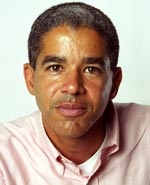
What’s the most important lesson you’ve learned as an editor?
We all have a writing voice and I’ve done my job well not if I’ve imposed mine on a reporter but if I’ve preserved theirs while making the piece clearer and more compelling than when it was filed. Every piece of journalism we produce should transport the reader, take them on a journey, make clear that the dateline means something. I want detail. I want color. I was dialogue. Boilerplate writing bores.
What’s been the biggest surprise of your editing life?
My most consequential editing is done with my voice, not my fingers. Giving good feedback at the start and precise recommendations on how to make a piece sing is as important, or even more important, than chopping the prose or moving the paragraphs myself. I was frankly amazed the first time I told a correspondent how to fix a story in a brief phone conversation and shortly thereafter saw it return transformed.
If you had to use a metaphor to describe yourself as an editor, what would it be?
I’m a conductor. As national editor, I lead an orchestra, a world-class one, but one that requires every last member to play beautiful, pitch-perfect notes.
What’s the best single piece of editing advice anyone ever gave you?
When I was a foreign correspondent in another time zone, I had an editor who would send me my edited stories by email. She always included the line “Let me know if I’ve done any harm.” I appreciated the humility, her acknowledgment that editors are not infallible. She was invoking a sort of Hippocratic Oath for editors about avoiding harm to the copy.
Marc Lacey is a longtime correspondent and editor for The New York Times. He has been based in Washington, Nairobi, Mexico City, Phoenix and New York. He is currently the National Editor.
I love this! I have been editing for most of my adult life, but have learned new things from Marc’s approach!